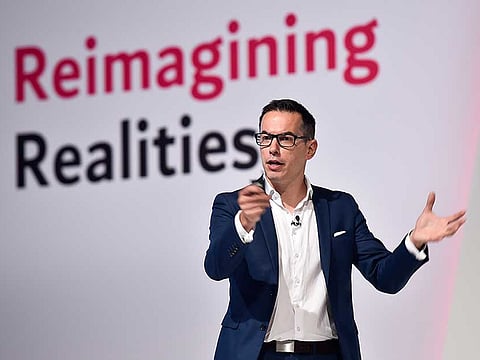How Jedi mind tricks help marketing
Neurotech headbands help us move objects with the mind — and reveal why we buy certain items

DUBAI:
Portable brain-scanning tech allows us to move things by thought — and provide retailers with information on what makes us buy a particular product.
Olivier Ouillier, president of EMOTIV, speaking at Gitex Technology Week’s health care seminars, said neurological studies have moved beyond large, expensive MRI scanners into lightweight headbands costing “no more than a games console” (the firm’s basic 5-channel headband retails for $299 (Dh1,098), with its 14-channel headset going for $799).
These electroencephalography (EEG) devices could help researchers study dementia and other neurological disorders in a less stressful environment than a hospital appointment, he said.
“But we can do more than just monitor the brain in action,” he said. “We can actually develop very cheap, portable and reliable brain-computer interfaces that allow us to become Jedis in a sense, to be able to move things with our minds. It’s not science fiction, it’s neuroscience in action.”
Ouillier gave the example of quadriplegic man able to drive a car through such a headband, and pointed out it would allow other people to control their wheelchairs.
“One of the industries that has been a very, very early adopter of using neuroscience in order to understand better our behaviour has been the consumer industry — retail stores, online shops. They’ve tracked the fact that we are not only rational or emotional, but our brain is functioning through what we call emo-rationality, the fact that informing us is not enough — almost everyone that is buying cigarettes has been informed now how bad it is to smoke. If information was enough, no physician would be smoking, and in [some] countries the ratio of physicians smoking is higher than non-physicians.
“This is because as intelligent as we are, as proud of our rationality as we are, our emotions are taking over. We are driven by many things — pleasure is one of them.”
The understanding of these processes was of great value to marketers and retailers. “The biggest paradox here is that the retail industry, the consumer industry are using medical devices, devices developed for health care, in order to better understand this.”
Sign up for the Daily Briefing
Get the latest news and updates straight to your inbox


